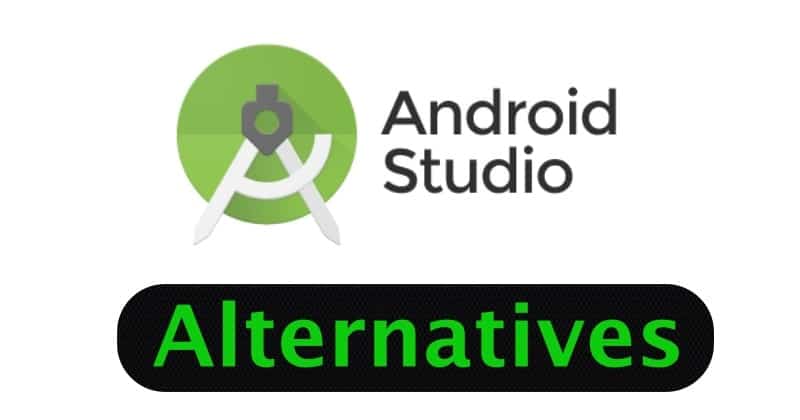Exploring Android Studio Alternatives: A Comprehensive Guide
Android Studio has been the go-to integrated development environment (IDE) for Android app development for many years. It offers a rich set of features and tight integration with the Android platform. However, the software development landscape is ever-evolving, and new IDEs and tools have emerged to cater to different needs and preferences. In this blog post, we will explore some of the popular Android Studio alternatives available to developers today. Whether you are looking for a lightweight solution, cross-platform compatibility, or specific features, there’s an alternative for you.
1. Visual Studio Code (VS Code)
Visual Studio Code is a lightweight, open-source code editor developed by Microsoft. Although not an IDE in the traditional sense, it has become a popular choice for Android development due to its extensibility and vast ecosystem of plugins. Developers can install extensions for Android development, making VS Code a versatile option for building Android apps. It supports Java, Kotlin, and various other programming languages.
2. IntelliJ IDEA
IntelliJ IDEA is the foundation on which Android Studio is built. Developed by JetBrains, it offers a robust set of features, including intelligent code assistance, powerful refactoring tools, and support for multiple programming languages. While Android Studio is tailored for Android development, IntelliJ IDEA caters to a broader range of platforms and technologies. If you are looking for a more general-purpose IDE with Android support, IntelliJ IDEA might be the perfect fit.
3. Eclipse with ADT Plugin
Eclipse, with the Android Development Tools (ADT) plugin, was once the most widely used IDE for Android development before Android Studio’s arrival. While its popularity has waned over the years, some developers still prefer Eclipse due to its familiarity and simplicity. The ADT plugin provides the necessary Android development features and integration with the Android SDK. However, it is worth noting that Eclipse is no longer actively maintained and might lack some of the latest features offered by modern IDEs.
4. React Native and Flutter
If you are considering cross-platform development, React Native and Flutter are worth exploring. While they are not traditional Android development environments, both frameworks enable developers to build apps for multiple platforms using a single codebase. React Native, developed by Facebook, allows you to build Android and iOS apps using JavaScript, while Flutter, developed by Google, uses Dart as its programming language. These frameworks offer fast development cycles, hot reloading, and a vibrant community that contributes to their ongoing improvement.
5. Xamarin
For developers who prefer C# as their programming language, Xamarin is a strong contender. Owned by Microsoft, Xamarin allows you to build Android, iOS, and Windows apps using C# and .NET. Xamarin provides a robust set of tools and seamless integration with Visual Studio, making it an attractive option for developers who are already familiar with the Microsoft ecosystem.
6. AIDE – Android IDE
AIDE is an Android Integrated Development Environment specifically designed for Android app development on mobile devices. It allows developers to write code, compile, and run Android apps entirely on their Android smartphones or tablets. With AIDE, you can create, edit, and debug Java and C++ code for Android apps on the go. It’s a fantastic choice for developers who want to code and test their applications without the need for a desktop or laptop.
7. Codota
Codota is not a complete IDE but rather a powerful plugin that can significantly enhance your Android development experience. It integrates seamlessly with Android Studio, offering intelligent code completion and suggestions based on machine learning algorithms. Codota can predict code snippets, saving developers time and reducing the likelihood of introducing errors. With its vast knowledge base and ability to learn from existing codebases, Codota is a valuable addition to any Android developer’s toolkit.
8. B4A (Basic4android)
B4A, formerly known as Basic4android, is a development tool that allows developers to create Android applications using the BASIC programming language. The platform abstracts many complex aspects of Android development, making it easier for beginners to get started. It provides a visual designer for building user interfaces and a powerful integrated debugger for testing and troubleshooting. While it might not be suitable for complex or large-scale projects, B4A is an excellent choice for rapid prototyping and small to medium-sized apps.
9. Genymotion
Genymotion is an Android emulator primarily focused on performance and speed. It is a popular alternative to the built-in Android emulator that comes with Android Studio. Genymotion provides a wide range of virtual devices with various Android versions and device configurations, making it easier to test your apps on different devices and screen sizes. With its fast execution and support for hardware acceleration, Genymotion is an excellent choice for running and testing Android apps efficiently.
10. AndroIDE
AndroIDE is a powerful IDE for Android development on devices running the Android operating system. Similar to AIDE, AndroIDE allows developers to write code and build Android apps directly on their Android devices. It supports Java and C++ programming languages and offers features like real-time error checking, code completion, and project management. AndroIDE is a handy tool for on-the-go development or for scenarios where access to a computer is limited.
Choosing the right Android development environment is a matter of personal preference and project requirements. Android Studio remains the most feature-rich and officially supported IDE for Android development, making it a reliable choice for many developers. However, the alternatives mentioned in this guide provide various advantages, such as cross-platform capabilities, lightweight performance, and language preferences. Consider your development needs, programming language familiarity, and project scope when selecting the best Android Studio alternative for you.
Regardless of your choice, the Android development community continues to thrive, and developers can benefit from the vast array of tools and resources available to create innovative and successful Android applications. Happy coding!

